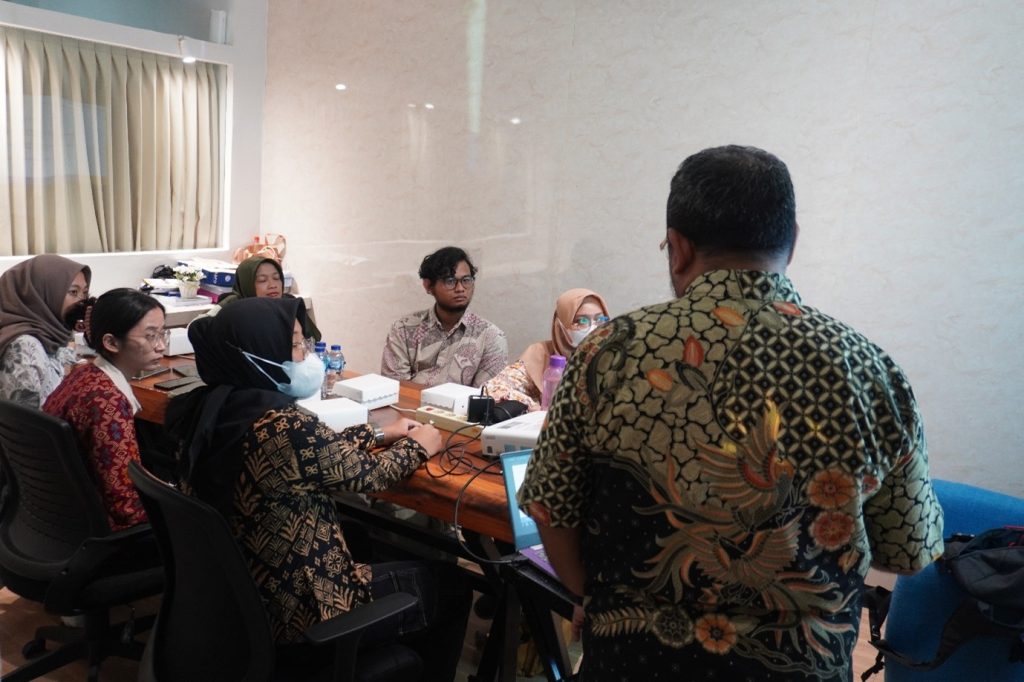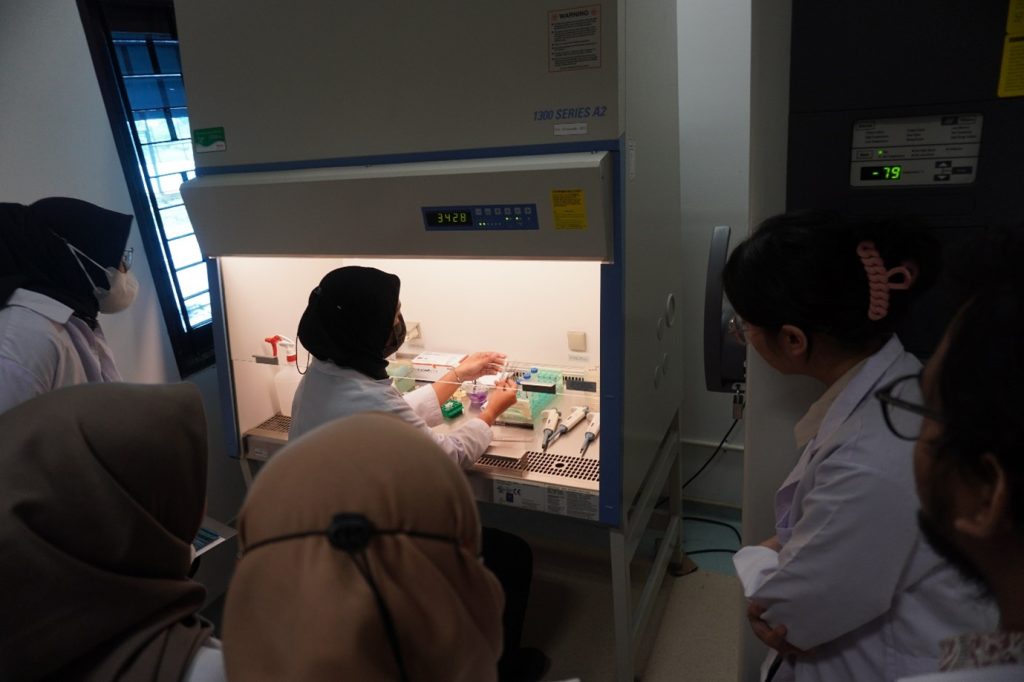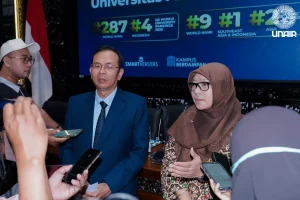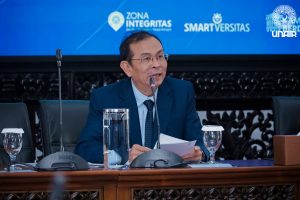UNAIR NEWS – To enhance researchers’ capabilities in testing antimicrobial activity, lecturers from the Faculty of Science and Technology (FST) Universitas Airlangga (UNAIR), affiliated with the Center of Excellence for Science and Technology—Molecular Biotechnology Research Center (BIOME), conducted a workshop titled “Antimicrobial Testing and Adaptive Laboratory Evolution.” The workshop took place on Tuesday, August 6, 2024, at the BIOME’s Applied Microbiology Laboratory in the Airlangga Research Hub. The event was led by Almando Geraldi PhD, with support from Prof. Dr. Ni’matuzahroh, Dr. Fatimah, and graduate students from the Biology Master’s Program at FST UNAIR.
The workshop attracted participation from lecturers and researchers from the Biology Department at Universitas Negeri Yogyakarta (UNY) and the School of Life Sciences and Technology at Institut Teknologi Bandung (ITB). The event commenced with a presentation on the theory and principles of adaptive laboratory evolution, followed by hands-on laboratory sessions covering disk diffusion methods, determination of Minimum Inhibitory Concentration (MIC), and Minimum Bactericidal Concentration (MBC).
Antibiotics play a crucial role in global health, but antibiotic resistance is becoming an increasingly significant threat. Indonesia, with its rich biodiversity, holds immense potential for discovering alternative antimicrobial agents.

Almando Geraldi underscored the importance of the techniques discussed in the workshop. “These techniques are vital for researchers in Indonesia to perform standardized antimicrobial testing, enabling their results to be published in reputable journals. Moreover, accurate results are essential for the development of standardized herbal antimicrobial drugs,” he explained.
Dr. Anna Rakhmawaty, a participant from UNY, emphasized the significance of the antimicrobial testing techniques taught in the workshop. “These techniques are crucial not only for obtaining accurate research results but also for teaching students essential skills for the workforce, especially those entering the pharmaceutical industry,” she noted.

Karin Rosalinda, S.Si., a research assistant and recent graduate from ITB’s Microbiology program, remarked that the techniques learned in the workshop would be highly beneficial for her research work.
This workshop not only improved researchers’ competencies but also fostered opportunities for collaboration between universities to explore and develop the potential of Indonesian medicinal plants as new sources of antimicrobial drugs.
Author: Versa Rachmania Hajar









